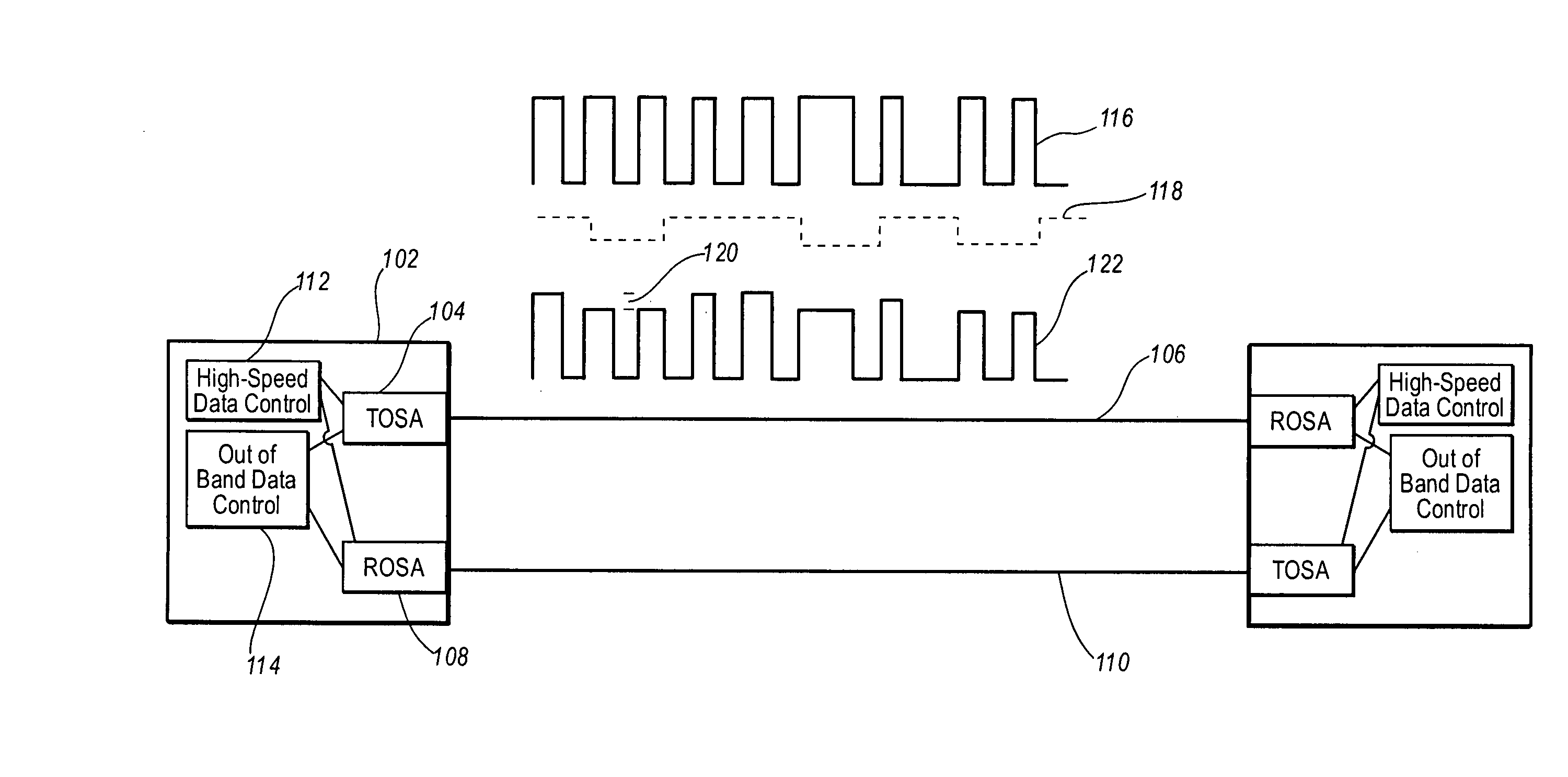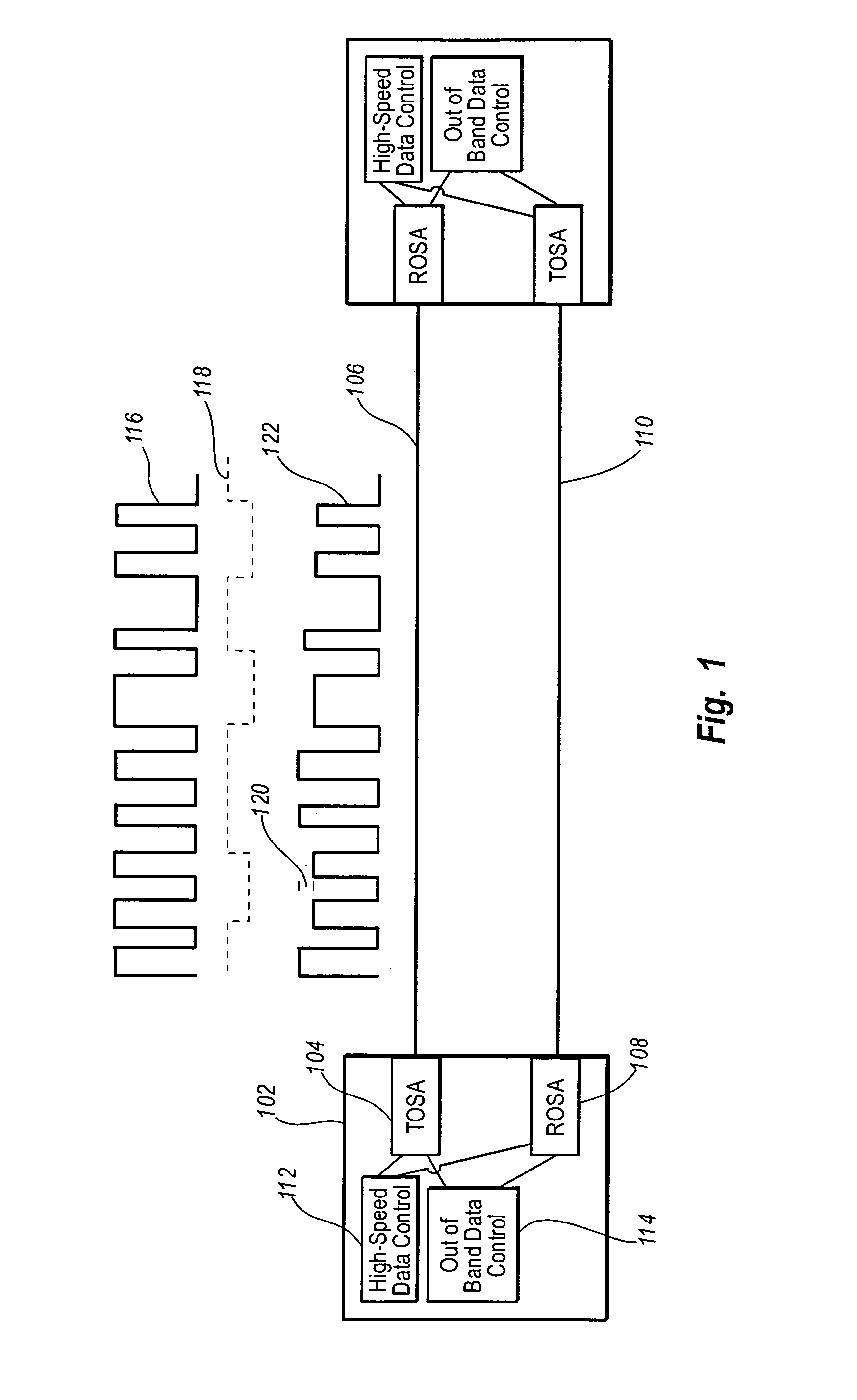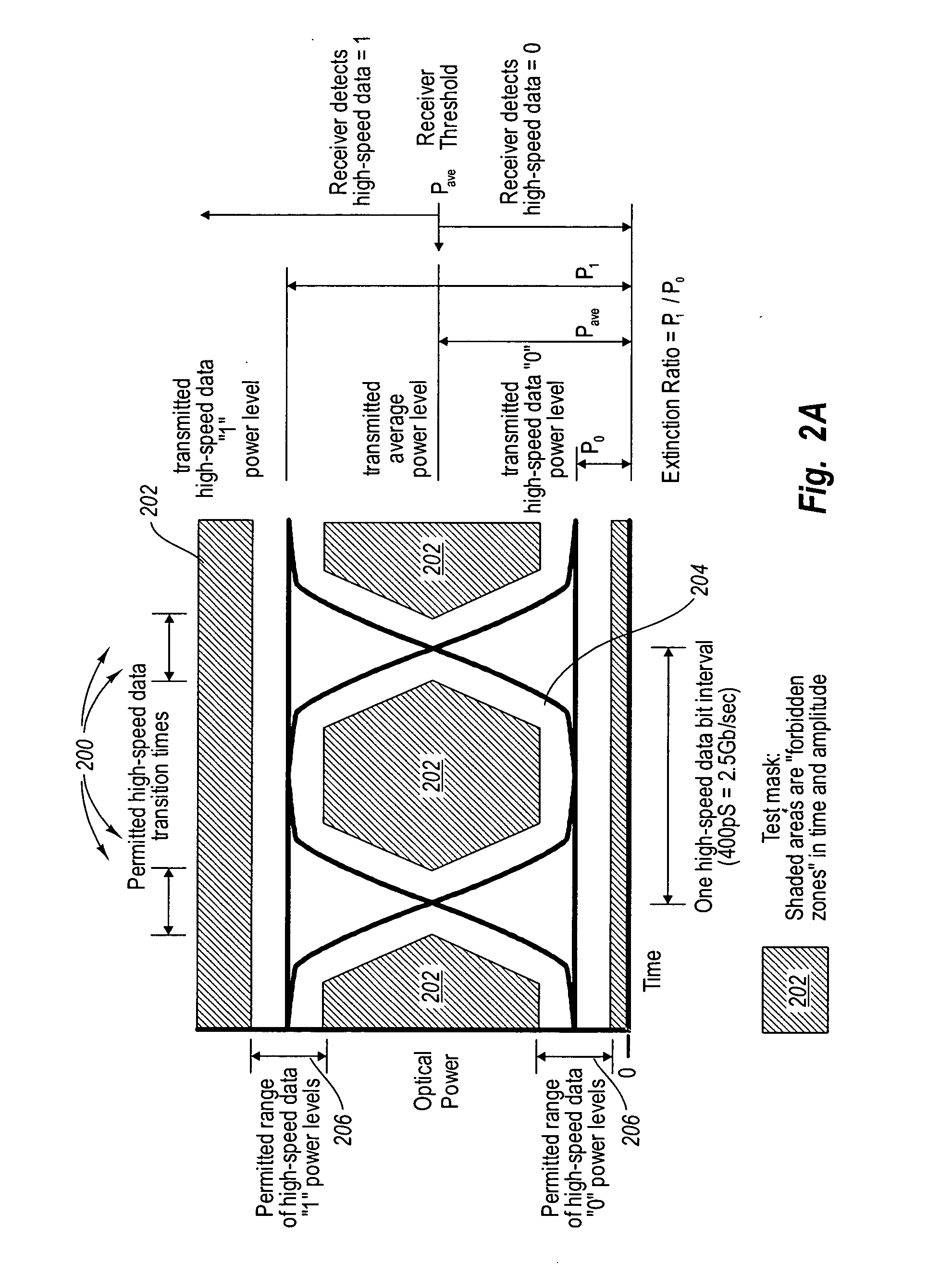Out-of-band data communication between network transceivers
a network transceiver and data communication technology, applied in electromagnetic transceivers, transmission monitoring, electromagnetic transmission, etc., can solve the problems of time delays, data processing, data processing cost, and data processing cost significant and unwanted costs of the data processing
- Summary
- Abstract
- Description
- Claims
- Application Information
AI Technical Summary
Benefits of technology
Problems solved by technology
Method used
Image
Examples
Embodiment Construction
[0046] Embodiments of the present invention include systems and methods for modulating high-speed data and out-of-band data as a double modulated signal. The double modulated signal is transmitted on a physical link between components in a network of connected hosts. Thus, high-speed data that is ordinarily transmitted on a physical link can be transmitted with out-of-band data on the same physical link. This allows for the transmission of information such as diagnostic information, authentication information, rate negotiation information, configuration information etc.
[0047] The term “high-speed data,” as used herein, does not refer to any particular defined bandwidth or frequency of data. Rather, high-speed data refers to data typically transmitted on a network such as the data typically transmitted for the benefit of the various hosts on a network. High-speed data may also be referred herein as in-band data which is a reference to the communication band typically used by host sy...
PUM
 Login to View More
Login to View More Abstract
Description
Claims
Application Information
 Login to View More
Login to View More - R&D
- Intellectual Property
- Life Sciences
- Materials
- Tech Scout
- Unparalleled Data Quality
- Higher Quality Content
- 60% Fewer Hallucinations
Browse by: Latest US Patents, China's latest patents, Technical Efficacy Thesaurus, Application Domain, Technology Topic, Popular Technical Reports.
© 2025 PatSnap. All rights reserved.Legal|Privacy policy|Modern Slavery Act Transparency Statement|Sitemap|About US| Contact US: help@patsnap.com



